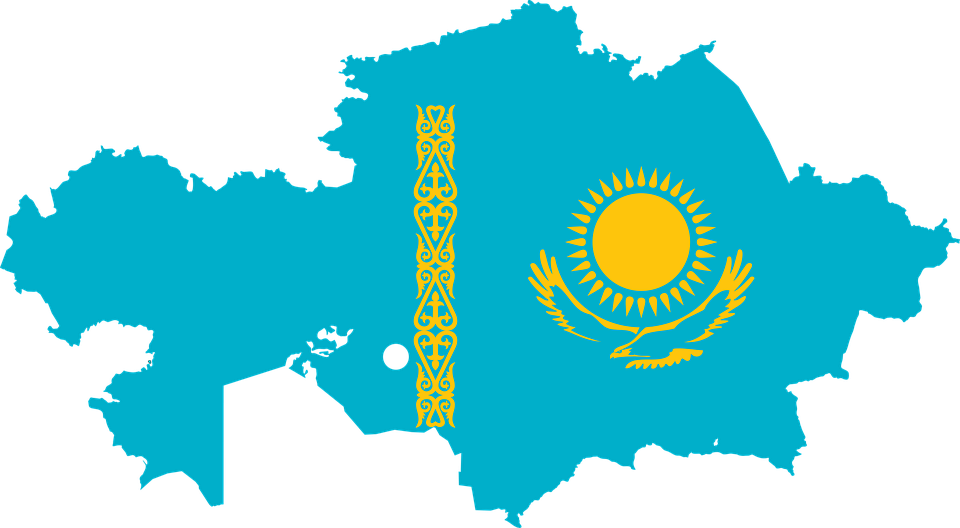The white water lily is Kazakhstan’s fragrant state flower. In another era President Vladimir Putin might appreciate its lemony aquatic scent, but this summer he is livid at Kazakhstan’s nationalists. They are refusing to support Russia’s war in Ukraine. In the Kazakh language nationalism can be translated in two ways. The first, ultshyldyq, is ambiguous in meaning. Ultzhandylyq, however, is positive and suggests a sense of indigenous nationalism that is growing rapidly in Kazakhstan over the last year. Today the country’s national-patriots, or ult-patriottary, are infuriating Moscow with their ultshyldyq.
The Russian government expected Kazakhstan to express gratitude for the assistance Putin provided in quelling the January popular uprising there. Instead, what the Kremlin is encountering is an increasing number of ethnic Russians who are abandoning the Russian Federation to live in Kazakhstan. Amid charges by Moscow that the government in Nur-Sultan is encouraging the exodus by offering foreign firms incentives to relocate, the Kremlin also is upset by its plans to “bypass Russia in exporting oil and gas,” according to a report from the Jamestown Foundation. Earlier this week, Tsargrad TV reported that a hacked document identified Kazakhstani firms as a source of weapons shipments to Ukraine via third-party countries, including the UK, added to the devolving relationship.
In a report from a Ukrainian hacker, Tsargrad TV said: “The document specifies 122 mm shells for D-20 howitzers; 152 mm shells for D-30 howitzers; missiles for BM-21 "Grad". The total number of shells is 20 thousand, missiles 33 thousand. The deal is concluded in the amount of $ 69 520 000. At the same time, the deal itself is supervised by the Ministry of Foreign Affairs of Kazakhstan in cooperation with the British military attaché in Kazakhstan. Also at the moment, negotiations are underway on the supply of 200 units of BTR-4 and ammunition for mortars.”
Paul Goble of the Jamestown Foundation notes that: “Relations between the two countries indeed appeared to have reached a new low on August 2, when a post attributed to Dmitry Medvedev, former president and current deputy head of the Russian Security Council, declared that “historically” what is today northern Kazakhstan was part of Russia—suggesting to some that Moscow would soon launch an invasion into its southern neighbor.” Although the post was only up for 10 minutes on the VKontakte page of the Deputy Chairman of the Security Council of the Russian Federation and ex-President of Russia Dmitry Medvedev, commentators in Russia acknowledge that the sentiment is widespread in Moscow. To date, Medvedev has not disavowed the comments. Goble reports that some military analysts inside the Kremlin are suggesting that it is likely Kazakhstan may be Putin’s next target after Kyiev. Writers in Moscow already are referring to the country as a “second Ukraine” and suggest that Russia is going through a “bad divorce” with Kazakhstan, despite its previously solid partnership.
The two countries share a lengthy border and there is a large ethnic Russian community in Kazakhstan. Goble points out that this summer, Moscow has “shown its displeasure by stopping the flow of oil westward from Kazakhstan through its territory, and Nur-Sultan has countered by upgrading its military.” He suggests that there are three aspects of this situation that suggest the Kremlin may decide to move against Kazakhstan while three others point to Moscow’s not moving against the Central Asian state.
“Regardless of the tensions that currently exist between the two enormous Eurasia countries,” he says, “the possibility of a major military clash between them is quite low.” However, that could change if Kazakhstan continues to move toward Ukraine, away from Russia’s sphere of influence, and becomes a bulwark for Islamist expansion northward into Russia itself.
Given that Russia is tied down in Ukraine, Goble thinks it unlikely that Putin will use his limited military resources against Kazakhstan right now. The second factor he points to is the decreasing percentage of ethnic Russians in the country over the last three decades, despite the recent surge in Russian immigration. In 1989, 38 percent of Kazakhstan’s residents were ethnic Russians; now it stands at 18 percent, and the total is projected to fall to 10 percent or less by mid-century. Absorbing Kazakhstan would make Russia less Russian and defeat one of Putin’s major goals. Third, Putin is known historically for making rash threats and even taking actions, such as stopping the flow of oil, only to have Kazakhstan’s leaders call, reassure Putin of their unquestioned support and then have the Kremlin pull back on its rhetoric and actions, according to Goble. The unknown factor this August is how long each country can sidestep the spark that could ignite an unintended war.
Daria Novak served in the U.S. State Dept.
